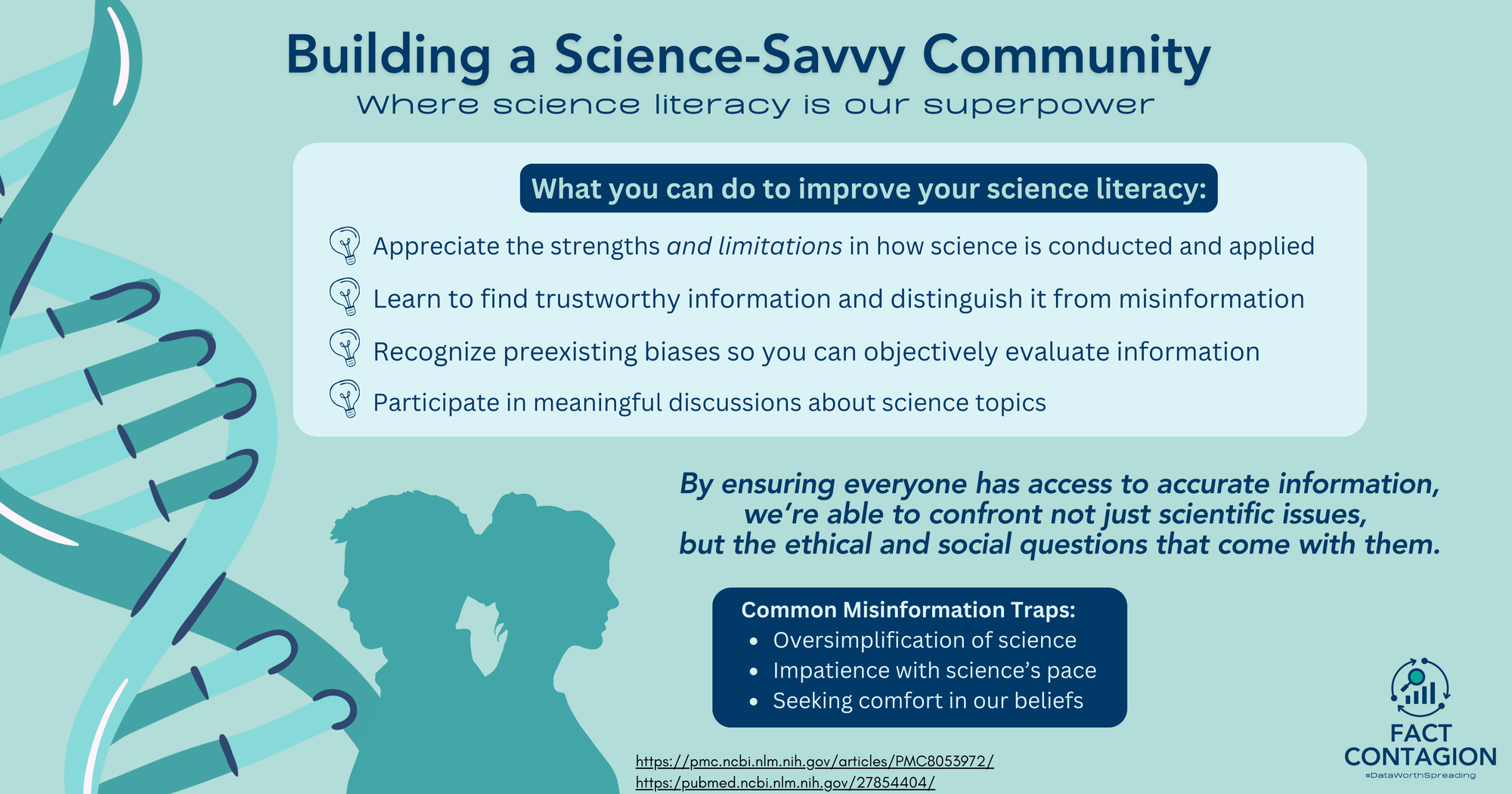Embarking on our journey toward Science Savviness

Science literacy is the ability to:
📚 Gather information from reliable sources
🔍 Accurately interpret scientific research
⚠️ Recognize misinformation
💻 Engage in productive scientific discussions
💡 Make well-informed decisions that impact you as well as your community
Cultivating your science literacy can empower you to navigate contentious topics with confidence. To stay informed, engaged, unbiased, and resilient. It’s the happy medium between the provocative messages of “Do Your Own Research” and "Trust the Experts". We should be curious yet grounded, open-minded yet discerning, and confident yet measured.
Misinformation traps happen for several reasons:
❌ Oversimplification of Science: We might expect science to have all the answers, but no one study (or even several studies) can tell the whole story. It’s also essential to recognize overgeneralizations or cherry-picked results. And some matters simply go beyond science alone and intersect with ethics and society, like climate change and environmental policies, or implications of AI.
❌ Impatience with the Pace: Science makes incremental advances that coalesce around consensus. It takes time to get clear answers, and sometimes there just isn’t one (yet). In times of uncertainty (like COVID), misinformation can fill the void while research is still evolving. It’s also completely normal for science to adjust conclusions as new information emerges. This is a feature, not a flaw.
❌ Seeking Comfort in Our Beliefs: It’s natural to gravitate toward information that aligns with our pre-existing views. But this can lead to further polarization. Being aware of your own biases can help you remain open to learning.
We can improve our science literacy by learning the fundamentals (like the scientific method itself, probabilities and risk, correlation versus causation) as well as appreciating the broader context of how science works (like peer review, transparency, accumulation of evidence, replication, and reliability). It’s also having the ability to navigate through the deluge of online media, seeking out trustworthy sources, and understanding how information is packaged and communicated.
Beyond improving individual knowledge, I hope this space can cultivate a *science-savvy community*. Where together we can share, question, and learn from each other. Disagreements and confusion around science will always exist. Uncertainty is part of the journey. By ensuring everyone has access to accurate information, we’re able to confront not just scientific issues, but the ethical and social questions that come with them.
There’s no metric for what it means to be science literate. But here are some ways we can get started:
✨ Appreciate the strengths and limitations in how science is conducted and applied
✨ Learn to find trustworthy information and distinguish it from misinformation
✨ Recognize preexisting biases so you can objectively evaluate information
✨ Participate in meaningful discussions about science topics
Let’s create a community where science literacy is our superpower. Where we can harness our knowledge to make informed choices and move forward together during this tumultuous time.

